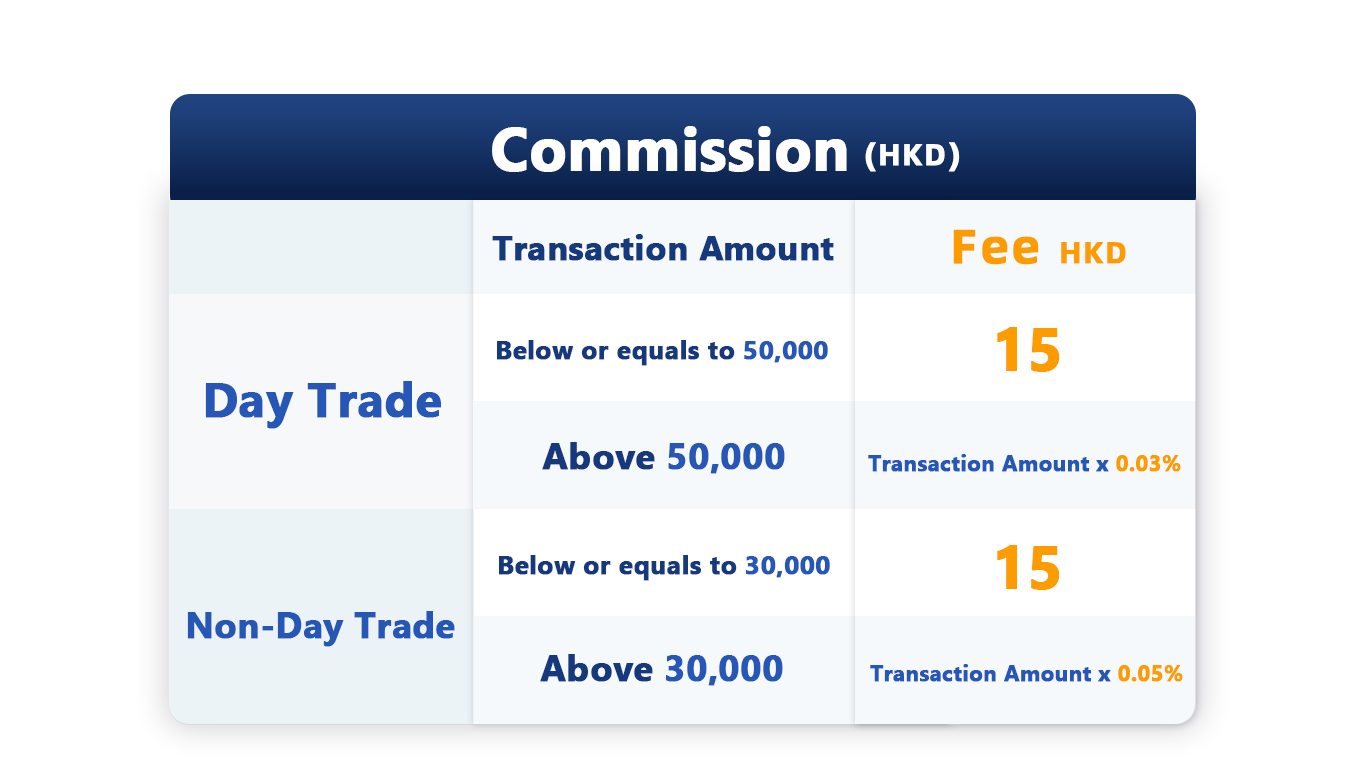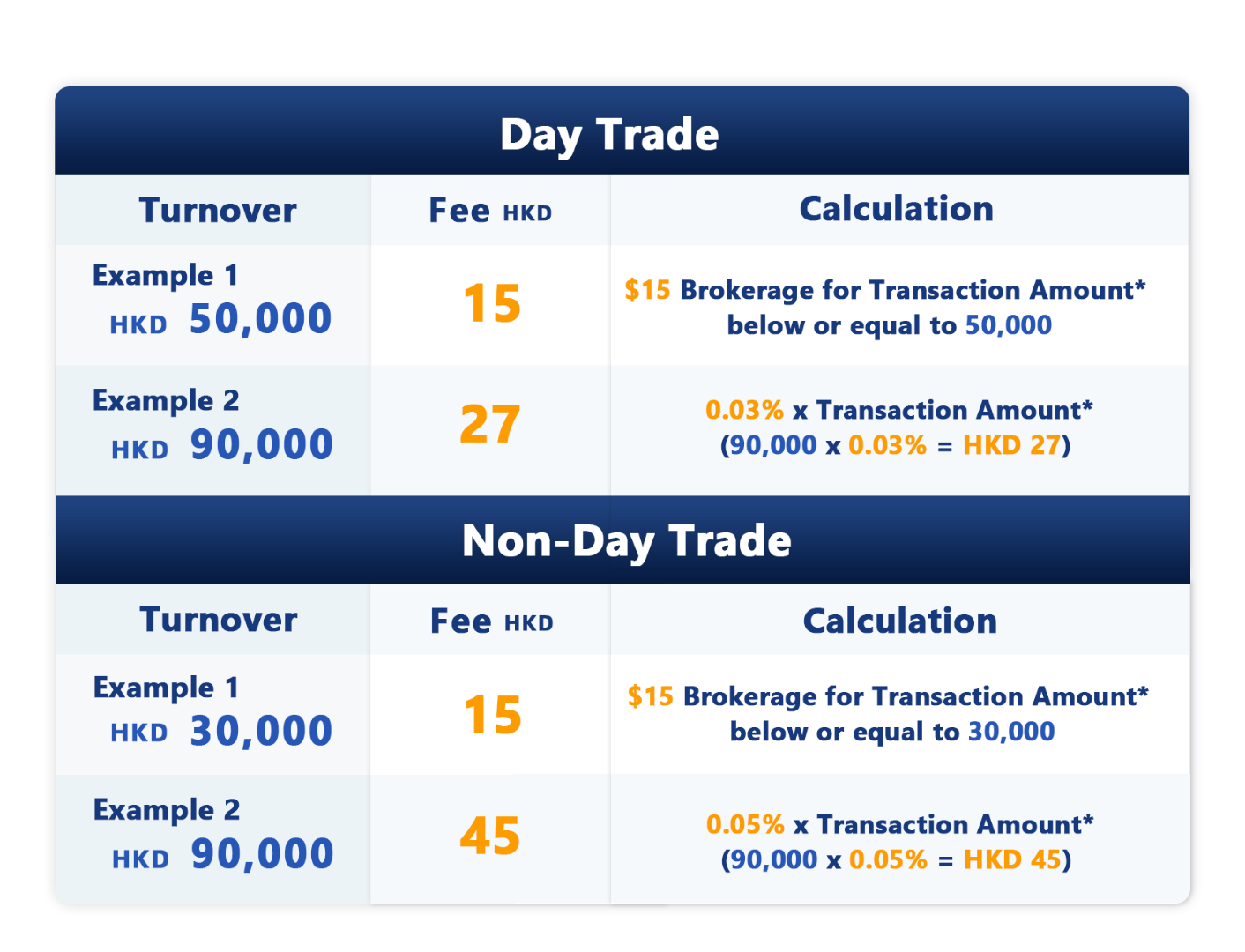-
Products
- Local Securities
- China Connect
- Grade Based MarginNEW
- Stock Borrowing & Lending
- IPO
- Stock Options
- Foreign Stocks
- Unit Trust
- Local Futures
- Foreign Futures
- Forex
- Bullion
- Insurance Services
- Bond
- Monthly Investment Plan
- Mortgage
- Other Services
- Surplus Cash Facility
- Phillip Premier
- Latest Insurance Promotion<
- ETF
- Capital Management
- Research
- Market Info
- Education Center
- Phillip Apps
- Customer Service
- About Us
-
Surplus Cash Facility
Warrant / CBBC



Enquiries:2277 6555 Customer Service
E-mail :cs@phillip.com.hk
Terms and Conditions
- This promotion is valid from 2 July 2020 until further notice.
- The offer only applies to on-line day trade transaction. On-line day trade commission 0.03%, minimum $15; Non day trade 0.05%, minimum $15.
- Day trade offer applies to on-line transaction for same Warrant/ CBBC in a same day.
- Poems point generated under this promotion will be calculated and based on 1 Points for every HK$2,000. This calculation is just applicable for on-line transaction.
Phillip Securities Group (the "Company") reserves the right to vary any promotion offers and services at anytime without further notice. In case of dispute, the decision of the Company shall be final.
Investment involves risks. For more details, please refer to the Risk Disclosures Statement at www.poems.com.hk.
Advantages of Warrant /CBBC comparing Underlying Stocks
- Relatively low cost per contract, leveraged and no margin call, suitable for short-term strategy.
- It caters bullish or bearish strategy. There are variety in choices ,transparency in pricing. Warrant /CBBC is launched by issuers, traded on Hong Kong Exchange and regulated by SFC.
- Easily traded with a securities account. The potential loss is the whole investment of the warrant / CBBC. To control investment amount for risk control.
- The offer applies to retail client only. AE self-traded accounts, accounts under specific AE codes and B2B clients are not included.
Introduction
Warrant /CBBC is a deriveriatve. It gives the buyer the right to buy or sell the underlying asset at a set price within a certain time. The underlying asset can be stock, market index, currency or commodity.
Features of Warrant
Compared with stocks, warrants have more attributes which include:
- Issuer: A warrant can be issued by a listed company (i.e. subscription warrant) or a third party such as a financial institution (i.e. derivative warrant).
- Underlying asset: It can be a single stock, a basket of stocks, an index, a currency, a commodity, a futures contract (e.g. oil futures) etc.
- Types of embedded rights: Don't mix up a call warrant with a put warrant. A call warrant gives you the right to buy whereas a put warrant gives you the right to sell the underlying asset.
- Exercise price: The price at which you buy or sell the underlying asset in exercising a warrant.
- Conversion ratio: This refers to the number of units of the underlying asset exchanged when exercising a unit of a warrant. Normally, in Hong Kong a derivative warrant on shares has the ratio of 1 (i.e.one warrant for one share) or 10 (i.e.10 warrants for one share)
- Expiry date: The date on which a warrant will expire and become worthless if the warrant is not exercised.
- Exercise style: With an American warrant, you can exercise to buy/sell the underlying asset on or before the expiry date. Whereas a European warrant allows exercise on the expiry date only.
- Settlement: A warrant can be settled by cash or physical delivery upon exercise. In Hong Kong, warrant is usually settled by cash.
Some warrants have more sophisticated features and are generally referred to as exotic warrants.
Features of Callable Bull/Bear Contracts(CBBC)
CBBC is a derivative contract that you can buy and sell. Its value is determined by the performance of an asset it is linked to.The bull/bear part describes two different products that can also be called a callable bull contract and a callable bear contract. A HSI callable bull contract rises in value if the index rises and a HSI callable bear contract rises in value if it falls.CBBCs also have got a number of other important features that need to be understood.
These are: spot price, finance cost, residual value, expiry date and entitlement ratio. Spot price is what it actually costs to buy or sell the CBBC. Finance cost is a charge that gets added to the CBBC's spot price. It covers the issuer's costs for creating the CBBC and varies from time to time.Residual value is what the CBBC is worth after it is called. If the call price is 11,000 and the HSI falls to 11,000, the CBBC will be called. But if the strike price is 10,000, the CBBC may have some residual value. Expiry date is the end of the life of the CBBC, and at that time the residual value is calculated by reference to the strike price.
Frequently Asked Questions
What should be noted when choosing warrants/CBBCs?
Strike price, implied volatility*, conversion ratio and maturity date are all basic factors that affect derivatives.
*For the trend of implied volatility, please refer to the issuer’s website or Hong Kong Stock Exchange website
*For the trend of implied volatility, please refer to the issuer’s website or Hong Kong Stock Exchange website
When will the CBBC be forcibly called back?
5 to 10 working days.
When a CBBC is forcibly called back, how should I calculate its residual value?
There will be an observation period during the trading session and the next trading session.
Bull contract: The settlement price is the lowest of the relevant assets during the observation period. If the strike price is triggered, the bull contract has no residual value.
Bear contract: The settlement price is the highest level of the relevant asset during the observation period. If the strike price is triggered, the bear contract has no residual value.
Bull contract: The settlement price is the lowest of the relevant assets during the observation period. If the strike price is triggered, the bull contract has no residual value.
Bear contract: The settlement price is the highest level of the relevant asset during the observation period. If the strike price is triggered, the bear contract has no residual value.
Does the purchase of warrants/CBBC mean the purchase of underlying shareholders’ equity?
No, owning derivative product does not mean owning its shareholders' equity, because the products have been bought and sold in consideration of the company’s visible behavior, such as dividends. Ex-dividend date is not going to affect the price of warrant/CBBC.
Any impact to me if my CBBC was madatory called during trading hour?
Any relevant proceeding during the day or holding would be frozen until settled.
Top of Page
|
Customer Service Department (General Enquiries) Tel : (852) 2277 6555 Fax : (852) 2277 6008 Email : cs@phillip.com.hk Enquiry & Support Branches The Complaint Procedures |
About Us Phillip Securities Group Join Us Phillip Network Phillip Post Phillip Channel Latest Promotion |
E-Check Login |
Investor Notes Free Subscribe |

|



